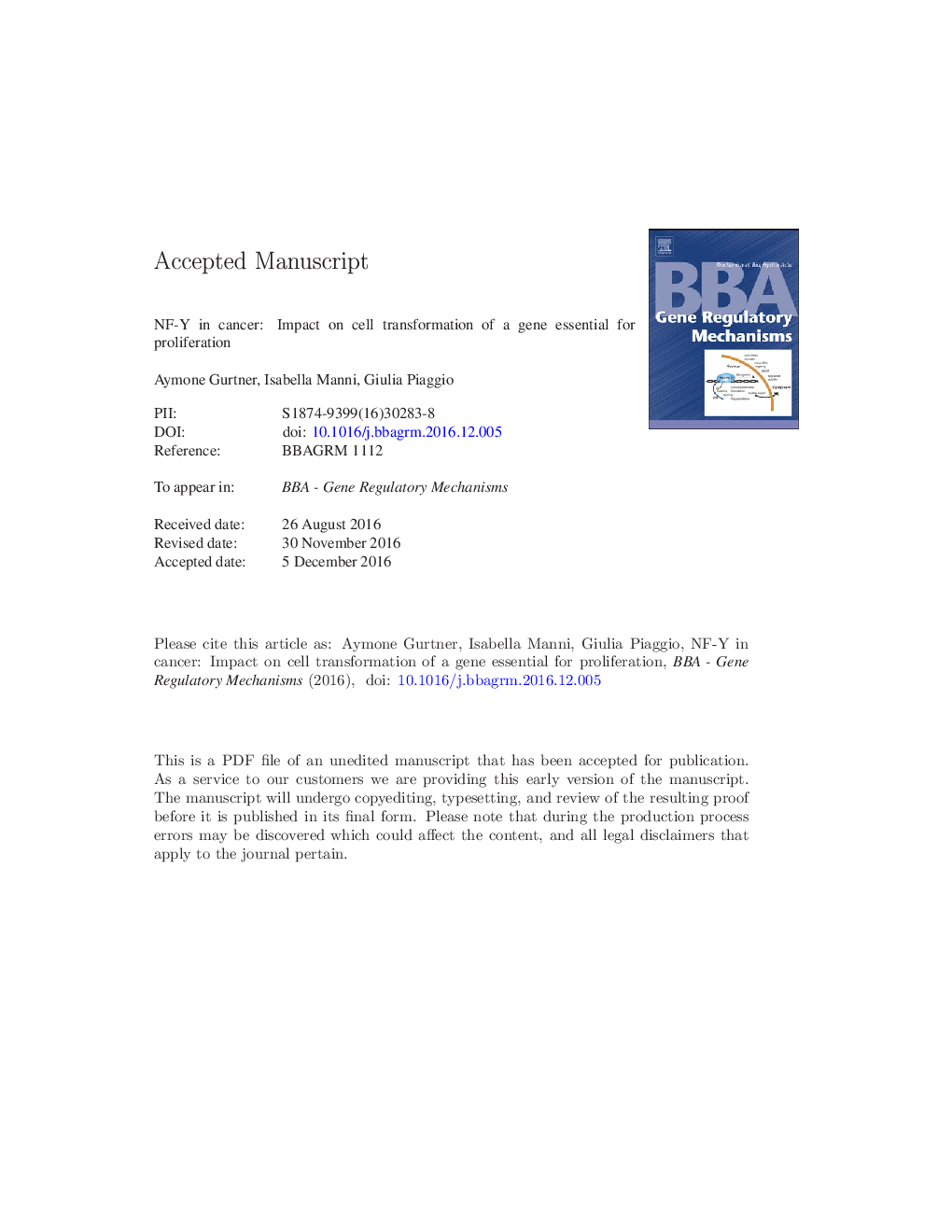| Article ID | Journal | Published Year | Pages | File Type |
|---|---|---|---|---|
| 5507805 | Biochimica et Biophysica Acta (BBA) - Gene Regulatory Mechanisms | 2017 | 53 Pages |
Abstract
NF-Y is a ubiquitous heterotrimeric transcription factor with a binding affinity for the CCAAT consensus motif, one of the most common cis-acting element in the promoter and enhancer regions of eukaryote genes in direct (CCAAT) or reverse (ATTGG) orientation. NF-Y consists of three subunits, NF-YA, the regulatory subunit of the trimer, NF-YB, and NF-YC, all required for CCAAT binding. Growing evidence in cells and animal models support the notion that NF-Y, driving transcription of a plethora of cell cycle regulatory genes, is a key player in the regulation of proliferation. Proper control of cellular growth is critical for cancer prevention and uncontrolled proliferation is a hallmark of cancer cells. Indeed, during cell transformation aberrant molecular pathways disrupt mechanisms controlling proliferation and many growth regulatory genes are altered in tumors. Here, we review bioinformatics, molecular and functional evidence indicating the involvement of the cell cycle regulator NF-Y in cancer-associated pathways. This article is part of a Special Issue entitled: Nuclear Factor Y in Development and Disease, edited by Prof. Roberto Mantovani.
Related Topics
Life Sciences
Biochemistry, Genetics and Molecular Biology
Biochemistry
Authors
Aymone Gurtner, Isabella Manni, Giulia Piaggio,
